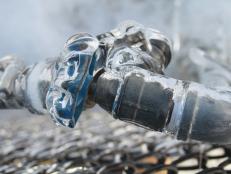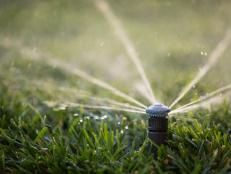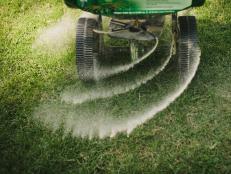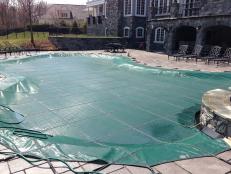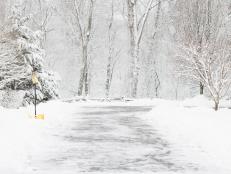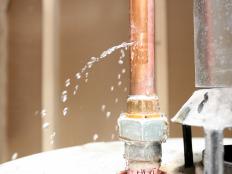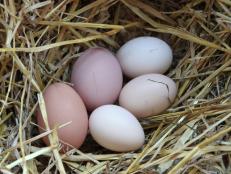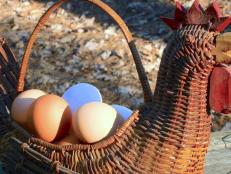Winterizing Your Chicken Flock


Here in the South, we rarely see the extreme cold temperatures found up North and this year has been especially mild so far. No snow yet, but we are finally seeing some freezing temperatures.
Being of Midwestern stock, I’m delighted to see that thermometer dip below 32 degrees, but one might wonder how the chickens feel about it.
We watched them molt in the late fall, growing a warm coat of new feathers in anticipation of the winter weather. Is that enough to keep them healthy and laying through the season? Due to the shorter daylight hours, we’re likely to see a severe drop in egg production until springtime (I'm down to 2 or 3 a day from my flock of 9), but as far as healthy chickens go, even in the North most breeds will be unphased by temperatures even as they approach sub-zero.
Winter weather does, however, bring with it other concerns that may affect the health of the flock. Here are some tips to keep your birds in the pink even on the chilliest of days:
Winterize the Coop
Although they will maintain a steady core temperature, wind chill can be a problem, especially when moisture is present. Make sure the roosts and nesting boxes are protected from direct wind, but do not insulate the coop as this will trap humidity inside the structure. Although chickens do quite well in the cold, a combination of freezing temperatures and high humidity is a recipe for frostbite on unprotected combs and wattles.
I discourage heat lamps in the coop, except in the most extreme conditions. Wide fluctuation in temperature is harder on chicken constitutions than a consistent chill. If you feel a heat source is necessary, make sure to use caged heat lamps with cold-resistant fixtures and keep it far away from flammable bedding.
Nesting material like straw or wood shavings should be copious and kept dry and clean throughout the season.
Fat and Happy
Keeping birds well-fed is important all year long, but consistent access to feed is essential during the winter months. Fat and happy wins the day and the digestion process will raise the core temperature of a chicken and improve circulation, both important in staving off the effects of cold weather. In addition to traditional feed, table scraps and vegetables will keep the flock hale and hardy. Scratch feed is also very good for digestion and scattering scratch late in the day will raise the metabolism of the roosting chickens through the night.
Consistent Watering
Chickens need a regular supply of water to survive. For most of the year, this is easily maintained with large or automatic waterers. In the unheated coop, however, water has a nasty habit of turning into ice in cold weather. Heated waterers are available, but electricity is not always available at the coop. Taking the waterer indoors overnight or putting out fresh water twice a day will solve the problem and ensure that you will be on hand to check out the coop for issues with moisture or wind that may have cropped up in the harsh elements of the season.






